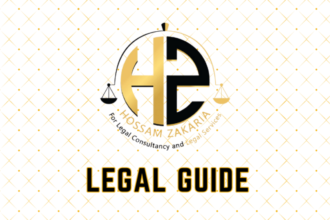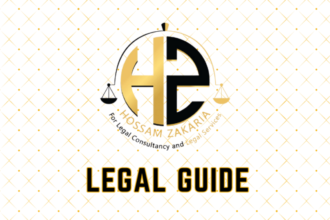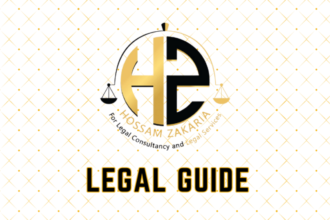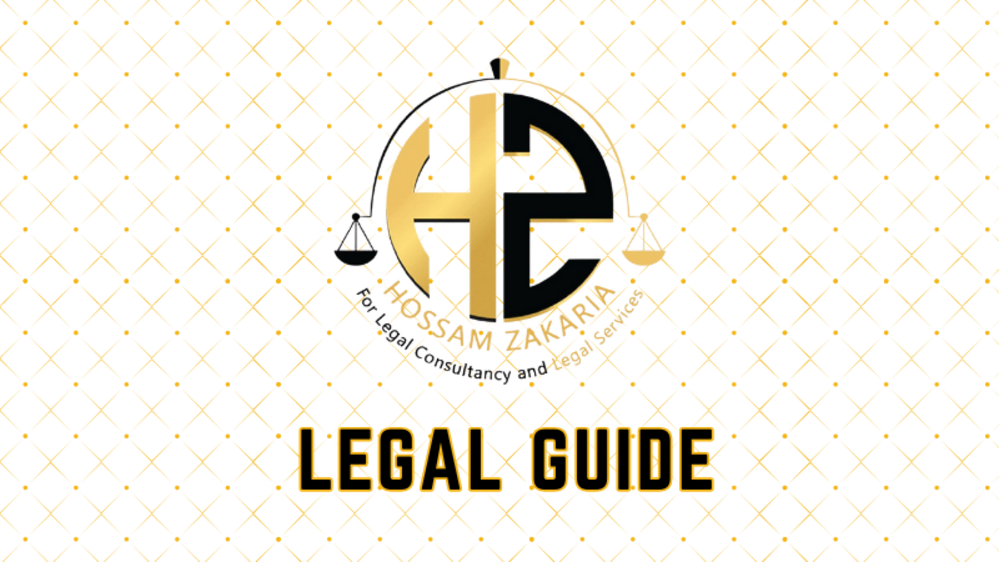Introduction: Navigating Banking Disputes in Saudi Arabia – Why UAE Stakeholders Must Stay Ahead
As the financial ties between the UAE and Saudi Arabia continue to deepen, the potential for cross-border banking disputes has become increasingly significant for UAE-based corporates, banks, and individual investors. Recent legal reforms in both countries, especially in light of Vision 2030 and the UAE’s continuous regulatory evolution, have led to notable shifts in the dispute resolution landscape. Understanding the nuances of Saudi Arabian litigation and arbitration procedures is no longer a mere advantage—it is a necessity for UAE stakeholders aiming to safeguard their interests and minimize legal and financial risks.
This in-depth article provides UAE-focused legal practitioners, executives, HR managers, and compliance professionals with actionable insights into resolving banking disputes arising in Saudi Arabia. Drawing on the latest legal updates, including relevant federal decrees, Cabinet resolutions, and ministerial guidelines, we analyze the process, highlight practical solutions, and suggest compliance strategies tailored to today’s interconnected financial environment.
Table of Contents
- Understanding the Legal Framework for Banking Disputes
- Banking Litigation in Saudi Arabia: Key Stages and Practical Considerations
- Arbitration in Saudi Arabia: Mechanisms and Opportunities
- Implications for UAE Stakeholders: Risks and Best Practices
- Case Studies and Hypotheticals: Learning from Real-World Scenarios
- Compliance Strategies and Proactive Risk Mitigation
- Conclusion and Forward-Looking Recommendations
Understanding the Legal Framework for Banking Disputes
Evolution of Financial Laws in Saudi Arabia
The Kingdom of Saudi Arabia has undergone substantial legal modernization with the introduction of statutes such as the Banking Control Law (Royal Decree No. M/5 of 1386H) and the updated Saudi Arbitration Law (Royal Decree No. M/34 of 1433H/2012). These reforms, championed by the Saudi Central Bank (SAMA) and the Ministry of Justice, have shifted dispute resolution mechanisms closer to international best practices. Saudi courts have adopted new procedural rules, while arbitration—historically underutilized—now stands as a robust alternative, especially for cross-border matters.
The Role of the Saudi Central Bank (SAMA)
SAMA acts as both regulator and, in select dispute categories, quasi-judicial authority. Its Banking Disputes Committee holds the mandate to adjudicate certain claims involving banks and their customers, including disputes over deposits, loan agreements, and electronic transactions. This centralized process expedites claims up to a set threshold, while complex or high-value disputes may escalate to the Board of Grievances or other specialist judicial bodies.
Comparison Table: Key Legal Developments
| Aspect | Pre-2012 Era | Current Framework |
|---|---|---|
| Applicable Law | Banking Control Law (limited reforms) | Expanded role of Banking Disputes Committee, Arbitration Law (2012), Mediation Law (2023) |
| Arbitration | Rare, limited enforceability | Widely adopted, enforceable under New York Convention |
| Cross-Border Disputes | Challenging, limited recognition of foreign judgments | Improved recognition, evolving bilateral agreements |
| Enforcement | Cumbersome, court-centric | Simplified, SAMA support, streamlined enforcement procedures |
Regulatory Interaction: UAE Legal Considerations
UAE-based entities engaging with Saudi banks must account for differences in regulatory approach, dispute resolution timelines, and risk allocation. The Federal Decree-Law No. 14 of 2018 (Concerning the Central Bank & Organization of Financial Institutions and Activities) and Cabinet Resolution No. 16 of 2021 (Governing the Financial Activities in the UAE) serve as the UAE’s core reference points, especially when foreign court or arbitral decisions must be enforced locally or vice versa.
Banking Litigation in Saudi Arabia: Key Stages and Practical Considerations
Step-by-Step Breakdown of the Litigation Process
1. Filing the Claim: Disputes involving banks often commence before SAMA’s Banking Disputes Committee. For complex or high-value disputes, claimants may proceed directly to the Board of Grievances, the administrative court with broad jurisdiction over contractual matters.
2. Procedural Timelines: Parties must adhere to strict filing deadlines and documentary requirements. Failure to provide Arabic translations or certified documentation can delay proceedings, especially for UAE litigants unfamiliar with local practice.
3. Evidentiary Rules: Saudi courts prioritize documentary evidence. Witness testimony may supplement but rarely substitute written contracts, transaction records, and correspondences. UAE stakeholders should ensure meticulous contract drafting and record-keeping tailored for Saudi forums.
4. Appeals and Enforcement: Initial decisions of the Banking Disputes Committee are appealable to higher committees, and ultimately to the Board of Grievances. Enforcement of judgments, historically a challenge for UAE stakeholders, has improved with recent digitization of the Saudi judicial system and cooperation frameworks.
Practical Consultancy Insights
- Due Diligence: Legal practitioners should conduct comprehensive due diligence on Saudi counterparties, particularly their financial stability and dispute history, to anticipate enforcement challenges.
- Choice of Governing Law and Jurisdiction: Many banking agreements are subject to Saudi law by default. UAE entities should negotiate dispute resolution clauses up front, leveraging the increasing acceptability of arbitration and considering hybrid mechanisms.
- Language and Localization: All court filings must be in Arabic. Utilizing certified legal translation services is vital for maintaining evidentiary integrity.
Case Example: Litigation Pitfalls for UAE Corporates
A UAE-based construction company enters into a syndicated loan with a consortium of GCC banks, including Saudi banks. When a repayment dispute arises, the Saudi lender commences proceedings before the Banking Disputes Committee in Riyadh. The UAE company’s delay in providing Arabic-translated documentation results in adverse inferences and loss of strategic advantage.
Arbitration in Saudi Arabia: Mechanisms and Opportunities
Modernization of Arbitration Law
The 2012 Saudi Arbitration Law (Royal Decree No. M/34) and subsequent regulations have moved Saudi Arabia closer to internationally accepted standards. The Saudi Center for Commercial Arbitration (SCCA) now offers neutral forums and procedures attractive for cross-border disputes. Most critically, Saudi Arabia’s accession to the New York Convention has substantially increased the enforceability of arbitral awards.
Arbitration Process Overview
- Commencement: Parties may initiate arbitration by agreement, often set out in the banking contract or via post-dispute submission.
- Selection of Arbitrators: Parties enjoy considerable autonomy in appointing arbitrators, subject to SCCA or bespoke procedural rules.
- Language and Hearings: English-language arbitration can be agreed, but final awards must be capable of translation and enforcement in Saudi Arabia.
- Award and Enforcement: SCCA awards are enforceable through the Saudi judiciary. Parties may face administrative scrutiny to ensure public policy compliance.
Table: Litigation vs. Arbitration – Comparative Analysis
| Feature | Litigation (Saudi Courts) | Arbitration (SCCA/Other) |
|---|---|---|
| Language | Arabic (mandatory) | Flexible, often English |
| Duration | 12-24 months+ | 6-12 months (typically) |
| Confidentiality | Public records | Private, confidential |
| Appeals | Multiple appellate levels | Very limited grounds |
| Enforceability (UAE) | Challenging, requires re-litigation | New York Convention, streamlined |
When Should UAE Stakeholders Choose Arbitration?
For cross-border transactions, project finance, or sensitive disputes, arbitration presents distinct advantages in terms of neutrality, speed, and enforceability. By specifying SCCA or ICC arbitration clauses—and ensuring awards are structured to meet Saudi enforcement criteria—UAE entities can mitigate risks associated with local litigation.
Implications for UAE Stakeholders: Risks and Best Practices
Risk Landscape
- Jurisdictional Uncertainty: Divergent legal systems and mandatory application of Saudi law can put UAE parties at a procedural or substantive disadvantage.
- Evidence and Documentation Risks: Lack of robust, Arabic documentation can lead to claim rejection or significant delay.
- Enforcement Barriers: Despite improvements, enforcing Saudi judgments or awards in the UAE requires navigating the UAE’s own judicial scrutiny and procedural prerequisites, as per Federal Law No. 11 of 1992 (Civil Procedure Law).
Best Practices for Navigating Disputes
- Contractual Protections: Engage in proactive drafting, stipulating clear dispute resolution methods, governing law, and language provisions in banking contracts.
- Pre-Litigation Strategy: Utilize SAMA’s mediation and complaints framework before escalating to full proceedings. This can preserve business relationships and reduce costs.
- Legal Representation: Retain counsel versed in both UAE and Saudi law, ideally with experience before SAMA, the Board of Grievances, or the SCCA.
- Readiness for Enforcement: Ensure all awards or judgments are in compliance with UAE enforcement requirements—an often overlooked but crucial element for UAE interests.
Case Studies and Hypotheticals: Learning from Real-World Scenarios
Case Study 1: Syndicated Loan Dispute
A consortium of UAE and Saudi banks provides a syndicated loan to a regional corporate. When defaults arise, the diversity of governing laws (UAE vs. Saudi) and forum selection clauses triggers parallel proceedings. The strategic use of SCCA arbitration allows for unified and enforceable outcomes, while sole reliance on Saudi litigation would have led to protracted and fragmented disputes.
Case Study 2: Enforcement of Arbitral Awards in the UAE
A UAE investor obtains a favorable ICC arbitration award against a Saudi bank. Under the New York Convention (to which both the UAE and Saudi Arabia are signatories), the award is expeditiously recognized by the Dubai Courts, provided all procedural standards—especially service and translation—are met. This underscores the need for internationally compatible arbitration clauses in UAE-Saudi finance contracts.
Hypothetical Example: Employment Dispute in Cross-Border Banking
An HR manager of a UAE-based bank, seconded to a Saudi affiliate, faces wrongful termination. The employment contract’s provision for SCCA arbitration ensures a neutral and efficient resolution, compared to the more restrictive labor court process in Saudi Arabia.
Compliance Strategies and Proactive Risk Mitigation
Compliance Checklist for UAE Organizations
| Checklist Item | Legal Reference | Practical Tip |
|---|---|---|
| Review dispute resolution clauses | Arbitration Law (Saudi), Federal Law No. 6/2018 (UAE) | Prefer SCCA/ICC arbitration for cross-border disputes |
| Ensure bilingual documentation | Saudi Civil Procedures Law, UAE Civil Procedure Law | Hire certified translators for all banking contracts |
| Engage dual-qualified legal counsel | MOJ (UAE, KSA) guidelines | Retain law firms with regional expertise |
| Monitor local legal updates | Federal Legal Gazette, SAMA, UAE CB | Regular compliance training & document reviews |
Compliance Risks: Cost and Penalty Table
| Non-Compliance Area | Potential Cost | Penalty/Consequence |
|---|---|---|
| Improper jurisdiction clause | Extensive re-litigation costs | Forum shopping, denied claims |
| Lack of certified Arabic documents | Delay, adverse decisions | Claims struck out/inadmissibility |
| Inadequate legal guidance | Unenforceable judgments | Financial, reputational loss |
Visual Recommendation: Dispute Resolution Flowchart
Suggestion: Incorporate a flowchart illustrating the typical process—from claim filing, mediation, committee review, to escalation and enforcement—involving both litigation and arbitration paths. This visual would help clients quickly grasp procedural complexity and timelines.
Conclusion and Forward-Looking Recommendations
With the accelerating integration of GCC financial markets and ongoing reforms in Saudi Arabia’s and the UAE’s legal frameworks, robust dispute resolution strategies are vital for UAE stakeholders conducting business across borders. Choosing the right dispute forum, structuring enforceable contracts, and maintaining rigorous compliance are key to minimizing risks and achieving favorable outcomes.
Key Takeaways for UAE Clients:
- Stay abreast of evolving laws—regular legal training and consultations are essential.
- Opt for arbitration in high-value or complex transactions, leveraging the enhanced enforceability under the New York Convention.
- Invest in documentation, translation, and legal advisory to ensure compliance in both jurisdictions.
- Proactively address enforcement concerns at the contract drafting stage, not after a dispute arises.
Looking ahead, regulatory convergence and increased digitization suggest continued evolution in dispute resolution, offering new opportunities but also raising compliance stakes. By taking a proactive, informed approach, UAE organizations can thrive in the dynamic cross-border banking landscape of the GCC.



